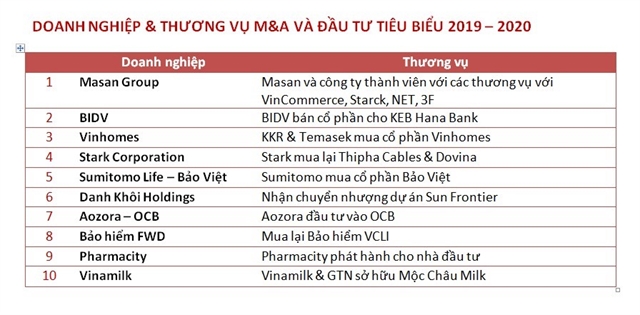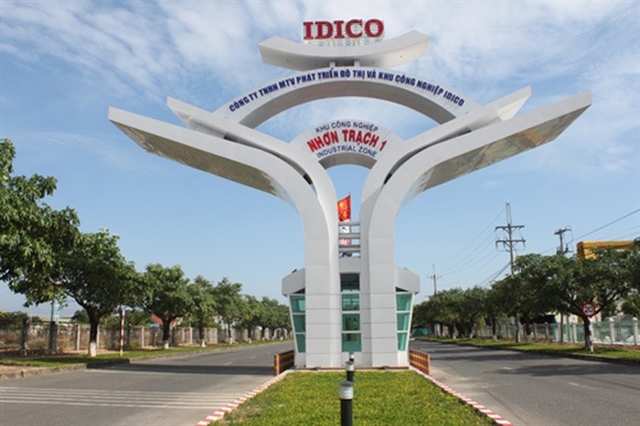HÀ NỘI — E-commerce offers businesses, especially small and medium-sized enterprises (SMEs) a direct reach to international customers, boosts their sales, speeds up the marketing process and saves costs, experts have said.
Industry insiders were speaking at a seminar on export local goods through e-commerce, held by the Việt Nam Chamber of Commerce and Industry (VCCI) and the Innovative Hub Company in Hà Nội on Tuesday.
“In the context of COVID-19, the supply chains are disrupted and e-commerce shows its superiority and strengths that can help SMEs continue their business, maintain operations and create a breakthrough more clearly," said Phạm Hoàng Tiến, director of the VCCI’s Small and Medium Enterprise Promotion Center.
Sharing how Singapore has practised effective e-commerce, Zoe Zuo, CEO of Innovative Hub said: “Vietnamese businesses need to acquire and do some things that are considered useful in Singapore with positive values to help promote the implementation of e-commerce in the country.”
Zuo advised firms to select and carefully identify customers, focus on different groups and select products suitable for them, adding they should also select e-commerce platforms and interfaces appropriate to the objectives of the business and find qualified staff.
According to the Việt Nam E-Commerce Association, the country's e-commerce market value will increase by more than 30 per cent this year, exceeding $15 billion and reach $52 billion by 2025.
Đoàn Thuý, a representative of Glovimex which produces handicrafts for export, said her enterprise has accelerated transactions through e-commerce and reported positive results.
Thuý said e-commerce platforms have helped her overcome difficulties and maintain growth amid the pandemic.
Nguyễn Thiên Phúc, COO and sales manager of Innovative Hub Vietnam said the use of smart digitisation in marketing has brought better results in sales and promoted the export activities of enterprises.
Lawyer Lê Trọng Thiêm, from the law firm LTT & Lawyers, said: “E-commerce transactions bring benefits but create many potential risks of cash flow, security on international payment transactions, transaction costs, technology risks or fraud and hackers.”
Thiêm recommended businesses develop a full, detailed and specific sales policy, learn and grasp the rules of the game and ensure the deadline to receive money in any transaction.
He added there should be a clear agreement with the partner while the enterprises must make a careful investment in technology and have knowledge about the geopolitical situation when trading via e-commerce.
The Asian Development Bank (ADB)'s Asian Development and Outlook 2020 Report forecasts that Việt Nam's economic growth will reach 2.8 per cent in 2020 amid a global economic slowdown due to COVID-19. The growth was expected to increase by 6.3 per cent in 2021. Notably, the report assesses that Việt Nam is showing stronger resilience compared to similar economies.
Like other countries, Việt Nam faces a very difficult period with more risks of cybersecurity and also the dependence on digital technologies.
Trinh Minh Anh, Head of Office of the Inter-sectoral Steering Committee for Global Economic Integration said: "The Government should give priority to developing digital identity in Vietnamese, build smart barriers and strongly develop electronic payment methods.”
Vũ Tú Thanh, a representative of the US - ASEAN Business Council, said the pandemic is having uneven impacts in each geographical area and business sector, by firm size and by digital transformation level, so Việt Nam should take its chance to take advantage of the digital economy.
With the scale of the local internet economy of US$14 billion, which was increasing 16 per cent from the previous year despite the pandemic, Việt Nam was forecasted to reach a scale of $50 billion in the next five years and be second only to Indonesia in the regional digital economy.
“Doing business on digital platforms with goods and services transactions over the internet is a great opportunity for Việt Nam," Thanh said. — VNS

















.jpg)













